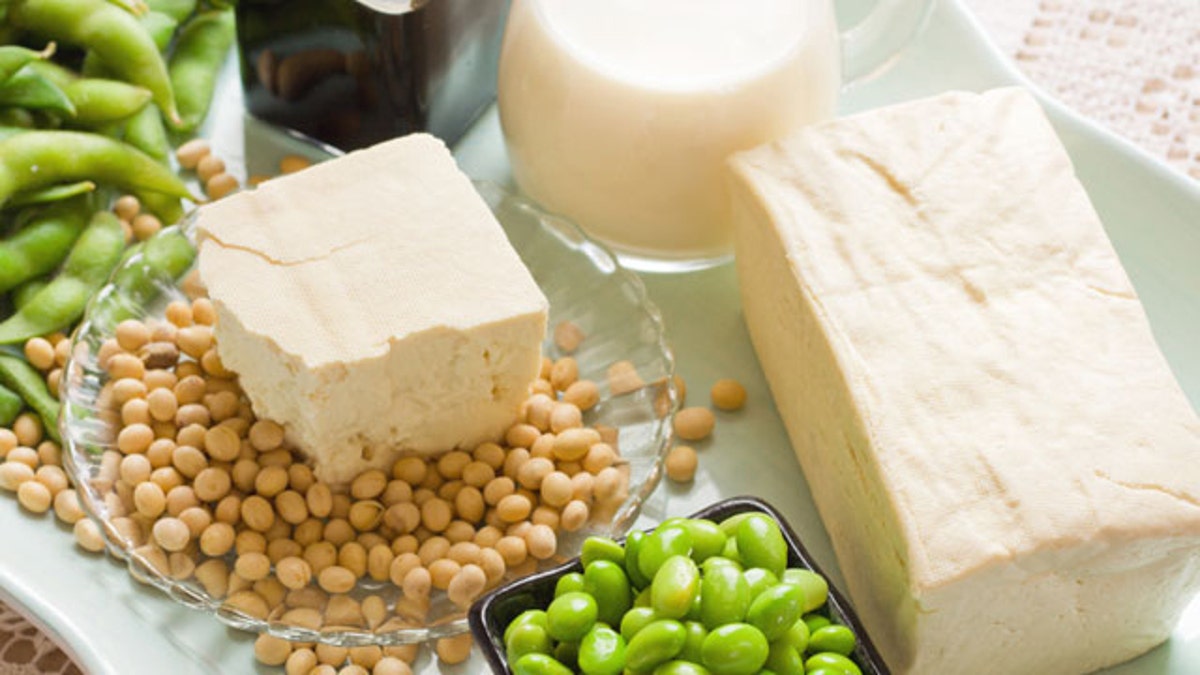
More evidence suggests eating soy may pose a slight benefit to some women who have been diagnosed with breast cancer, but it's too early to recommend cancer survivors change their diets, some experts say.
Among more than 500 women in China whose breast cancer was driven by the hormones estrogen or progesterone (or both), those who had gone through menopause and ate the most soy were less likely to experience a recurrence of their disease over about 5 years.
However, a soy-filled diet showed no benefit in women who had not yet gone through menopause, nor in those who were taking tamoxifen, a drug for hormonally driven cancers. Eating soy also did not reduce the risk of death among either pre- or post-menopausal women.
Soy foods are rich in compounds called isoflavones -- a major group of plant-derived phytoestrogens that have both estrogen-like and anti-estrogen effects.
In the current study, published Monday in the Canadian Medical Association Journal, women with the highest soy intake consumed more than 42 milligrams of isoflavones per day, roughly equivalent to one and a half cups of soy milk.
Eating soy has been linked to a reduced risk of breast cancer in some studies, while other studies have suggested that soy may help breast cancer cells grow and multiply, or interfere with the effectiveness of cancer drugs.
As a result, many women with breast cancer are faced with an important question: Will eating soy hurt or help my prognosis?
Last year, a larger study (more than 5,000 breast cancer survivors, also in China) found that a higher intake of soy was associated with a lower risk of death or a recurrence of breast cancer during the follow-up period.
In the current study, among postmenopausal women, those who ate the most soy were 33% less likely than those who ate the least to experience a recurrence of their disease during follow-up.
These findings together paint a picture that suggests soy may not hurt breast cancer survivors, and in some cases, may even help, study investigator Dr. Xinmei Kang of Harbin Medical University in China told Reuters Health in an e-mail. "Soy food is safe for breast cancer patients and might be beneficial to some of these patients."
But there's not enough evidence to suggest women with breast cancer should eat more soy than they already do, Dr. William Helferich of University of Illinois at Urbana-Champaign told Reuters Health. He has found using laboratory animals that genistein, a widely used soy-based dietary supplement, can negate the effectiveness of two popular cancer treatments.
The current study looked at women who had been eating soy - a mainstay of the Asian diet - all their lives, Helferich cautioned, and these findings may not be applicable to women in the U.S. who are increasing their intake of isoflavones after a breast cancer diagnosis.
"There's not enough evidence to say women should be eating more soy after breast cancer," Helferich said. "Soy is an excellent food that's okay to consume as part of a healthy diet, but one should not consume soy as their only legume."
Dr. Leena Hilakivi-Clarke, who studies the effect of phytoestrogens on breast cancer at Georgetown University in Washington, D.C., agreed that breast cancer patients who have eaten soy all their lives may experience different effects than women who have not made soy a regular part of their diet.
When a woman is diagnosed with breast cancer, "if she has never eaten any soy, she definitely should not start," the researcher said.
